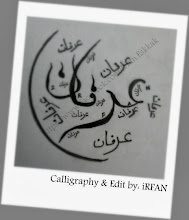Soon after this, the old man did indeed die,
leaving behind his goods and property, his children and his dependents. Family,
friends, acquaintances and neighbors attended his funeral. The body had been
washed and was almost completely wrapped in the shroud, when the son remembered
his father's wish. Finding one of his old socks, he handed it to the washer of
the dead, saying, "In accordance with my father's last request, please put
this sock on his foot."
"That is quite impossible,” said the man.
"Such a thing is utterly impermissible in Islam. I cannot act against the
Sacred Law." Despite this valid objection, the son insisted, "That
was my father's final request; it must certainly be carried out."
The washer of the dead was unmoved. "If you
won't take my word for it," he said, "go and ask the mufti. He will
confirm what I tell you, that it is not permissible." Holding up the
funeral, they consulted the mufti, preachers and scholars, all of whom declared
that this was not permissible in Islam. Just then, an aged friend of the
deceased interrupted the debate with these words to the son: "My boy, your
late father entrusted me with a letter which I was to hand over to you after his
departure. Here, this letter belongs to you." So saying, he gave him an
envelope. Taken by surprise, the boy opened the envelope and read out the
contents of his father's letter:
"My son, all this wealth and property I have
left to you. Now you see: at the last moment, they won't even let you give me
an old sock to wear. When you yourself come one day to be in my condition they
will also refuse to let you keep anything but your shroud. Few yards of shroud
are all you will be able to carry over from this fleeting world into the
Hereafter. So pull yourself together and be prepared. Spend the fortune I have
left you, not for the satisfaction of vain desires, but in ways pleasing to
Allah, that you may achieve honor in both worlds."



.jpg)



